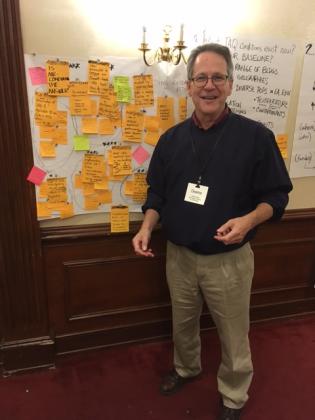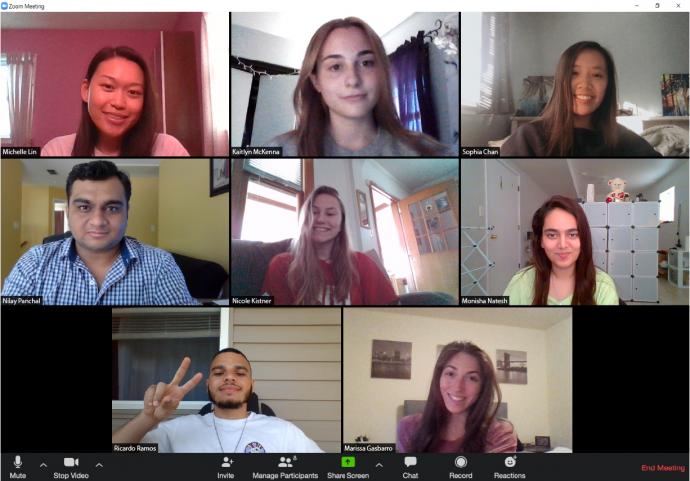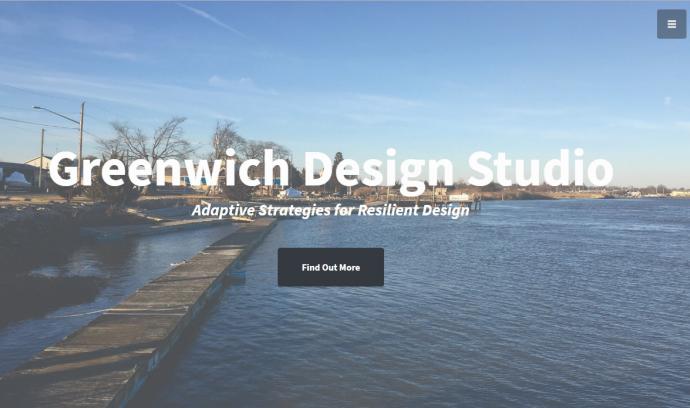New and Noteworthy
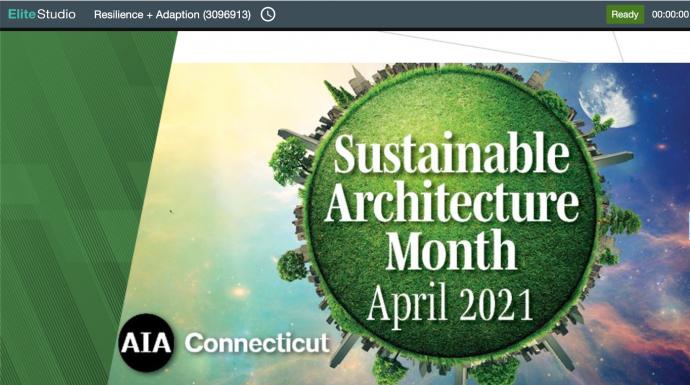
On April 27, 2021, Executive Director Deane Evans of the Center for Building Knowledge and Center for Resilient Design was asked to serve as a panelist at the American Institute of Architect’s Live Action Climate Program: Resilience + Adaptation.
Deane and three other panelists, along with moderator Kathy Dorgan of Dorgan Architecture and Planning of Storrs, discussed resilience and community building with the goal of encouraging community involvement in neighborhoods through architecture and firm culture.
The panel addressed the shocks and stresses most critical to the built environment and the important role of architects in protecting people and property, including explaining the performance attributes of hazard mitigation, resilience, and adaptation as different approaches to address these shocks and stresses. Topics also included the qualities and characteristics of resilient and adaptable design strategies and the different roles and responsibilities of architects in promoting resilience goals.

Deane Evans, Executive Director of the Center for Building Knowledge and the Center for Resilient Design, is now also Associate Dean of Research for the Hillier College of Architecture.
Click here for more information about Deane and his new role at New Jersey Institute of Technology.

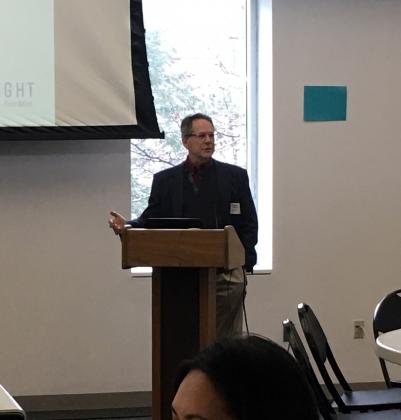
Executive Director Deane Evans Addresses Resilience Task Force on December 11, 2019
On December 11, 2019, the Center for Resilient Design hosted the final meeting of the Resilience Task Force – a group of 400+ leaders from New Jersey and New York, spanning grassroots to environment to business to government. The Task Force objective, over the course of 2019, has bee to build consensus on the resources and policies needed to galvanize adaptation action and to inform a 2020+ campaign for regional resilience. The campaign will range from awareness building to political advocacy.
CRD has participated in the Task Force since its inception and will continue to stay involved as it evolves from “consensus-building to coalition building.”
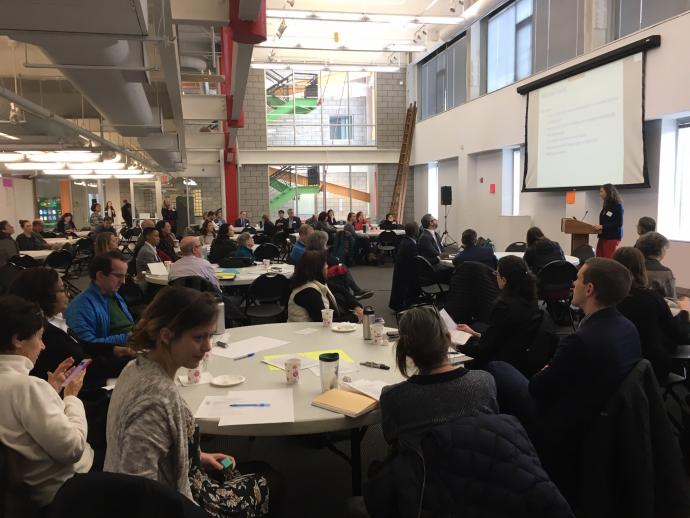
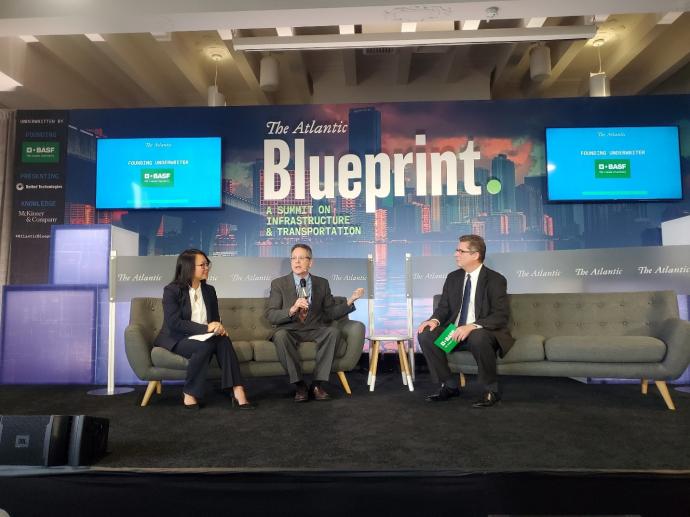
Center for Resilient Design Executive Director, Deane Evans, presents at the latest AtlanticLIVE Summit in Washington DC
The Center for Resilient Design’s Executive Director, Deane Evans, was an invited speaker at Blueprint: An AtlanticLIVE Summit on Infrastructure and Transportation in Washington, DC.
AtlanticLIVE Summits are annual events – convened and produced by The Atlantic magazine - that explore critical issues and potential paths forward for improving America’s infrastructure and transportation systems in the 21st century. Each event brings together thought leaders who are shaping urban environments – policymakers, developers, professional experts, entrepreneurs & industry leaders.
The most recent Summit – convened on December 4, 2019 - explored the impacts of climate change on the nation’s critical systems, together with potentially disruptive strategies for mitigating these impacts. Mr. Evans, along with Grace Showalter, Vice President, Construction Performance Materials North America at BASF, discussed Sustainable Construction: Resilient Infrastructure That Protects Our Communities.
The Center for Resilient Design joined more than 110 other NJIT research institutes, centers, and specialized laboratories at the 2019 NJIT Research Institutes, Centers and Laboratories Showcase and President’s Forum on November 14, 2019. It was a great opportunity to network and learn about NJIT's continuously growing NJIT’s research enterprise and share information about our projects with the NJIT community.
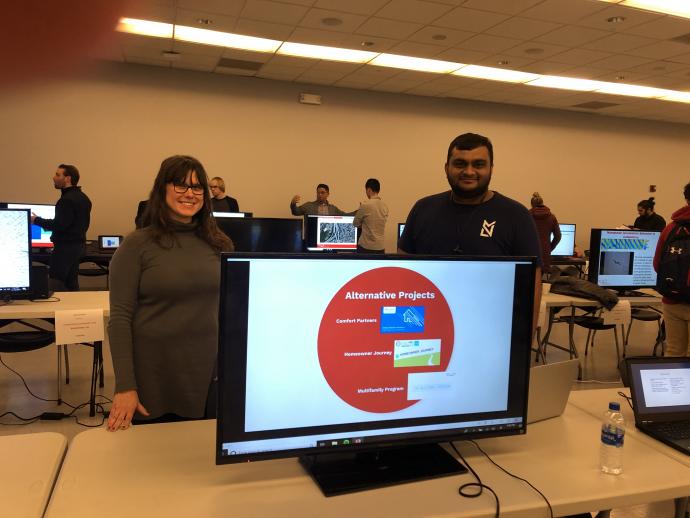
Terra Meierdierck and Nilay Panchal represent the Center at the 2019 NJIT Research Institutes, Centers and Laboratories Showcase.
On Thursday, February 21, Director Evans attended the kick-off meeting of the Building Coastal Resilience for the NY-NJ Coastal Metropolitan Region Task Force in Newark.
75 experts and stakeholders from New Jersey and New York convened to explore innovative ways to adapt the NYC metropolitan region to sea level rise and coastal storms. The Task Force will continue to convene over the coming 12 months to develop a coastal resilience action agenda and outreach campaign to better address and improve the coastal resilience of the region.
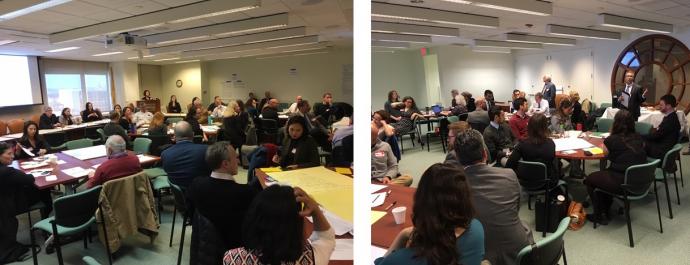

The Center for Resilient Design has launched the Community Microgrids Planning Academy—a multi-media online educational platform designed to instruct jurisdictions on how to collect, organize, and analyze infrastructure data for the purpose of creating effective microgrid development plans for their communities in order to proceed to the next stage in the overall microgrid development process: the technical feasibility assessment.
This Academy is the culmination of the Microgrids for Resilient Communities Planning Project (SPRAG-185828) undertaken by a multi-discplinary team led by the Center and including Greener by Design, LLC and the Regional Plan Association. The team assisted three jurisdictions in New Jersey—Galloway, Neptune, and Newark—in collecting information for and creating microgrid development plans robust enough to support a technical feasibility assessment.
The Academy incorporates the lessons learned from the microgrid development planning processes observed and documented in these three municipalities, supplemented by best practice information from regional and national sources.
Organized into 5 key sections – Microgrid Basics; the Microgrid Development Process; Community Microgrid Planning; Expert Tutorials; and Resources – the Academy is designed to:
- Explain what community microgrids are;
- Describe their potential economic and resilience benefits;
- Delineate the series of steps needed to develop, implement and manage a microgrid;
- and prepare municipal officials to more effectively engage with the growing level of microgrid development activity across the US.
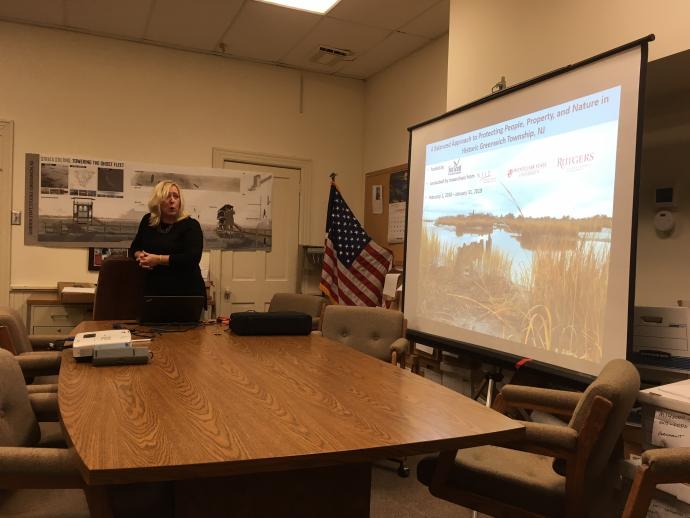
Colette Santasieri, PhD, presents the results of a 2-year resilience research study to citizens of Greenwich, NJ, a township increasingly exposed to the impacts of flooding and storm surge.
Titled At Risk: Healthy Coastal Ecosystems and Resilient Communities and Economies in an Era of Climate Change: A Balanced Approach to Protecting People, Property and Nature in Historic Greenwich Township, New Jersey, the study explored design and engineering strategies to:restore and enhance the natural environment focusing on tidal wetlands; improve flood protection in the village; and protect upland habitats, farmland and historic structures and sites. The project goal was to develop design and engineering approaches that have the power to protect people, property, and natural resources, strengthen the economy, and enhance the quality of life, not only in Greenwich Township, but in other coastal communities throughout the state.
The project also included a one-semester design studio at the NJIT College of Architecture and
Design. The studio explored a series of approaches to help improve the physical and economic resilience of Greenwich, and the results have been loaded into an online platform:
The studio’s three phases – Research, Strategies and Design – are presented as a series of YouTube videos. Collectively, the videos describe a process that could be implemented by other jurisdictions – on the Delaware Bay and elsewhere – that are grappling with economic revitalization in the face of increased flood risk.
Terra Meierdierck recently attended and participated in an invitation-only roundtable discussing possible financing structures to support microgrids in the State of New Jersey. Sponsored by the NJ Board of Public Utilities and the National Association of State Energy Officials (NASEO), the roundtable was part of a series of Infrastructure Financing Workshops designed to enable participants and their consultants to familiarize themselves with one another’s work and identify preliminary opportunities for collaboration and cooperation to further clean energy microgrid development in the state. Terra presented information on the Center for Resilient Design’s recently completed Community Microgrids Planning Academy (www.microgrids.io).
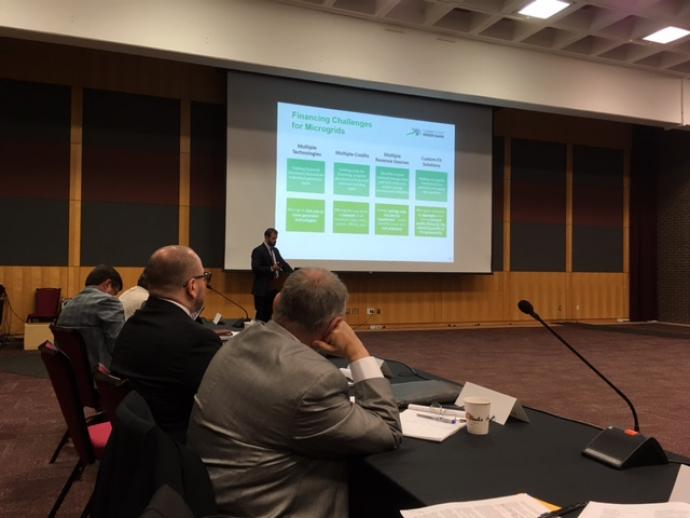
On October 9, Director Evans participated in the 2018 New Jersey Coastal Resilience Summit at Monmouth University. Researchers, practitioners and policy makers from across New Jersey took part in an interactive suite of discussions designed to help the NJ Department of Environmental Protection - who supported the event – to craft a New Jersey Coastal Resilience Plan. The purpose of the Plan will be to inform and guide the State’s policies, regulations, resource allocations and funding in the coastal zone to reduce the impacts of coastal hazards; increase resiliency for structures, infrastructure systems, environmental resources, and coastal communities; address socially vulnerable populations; and attract equitable and sustainable investment. The Summit was intended to begin discussion and prioritization of key elements of the Plan, which will continue to develop over the course of 2019.
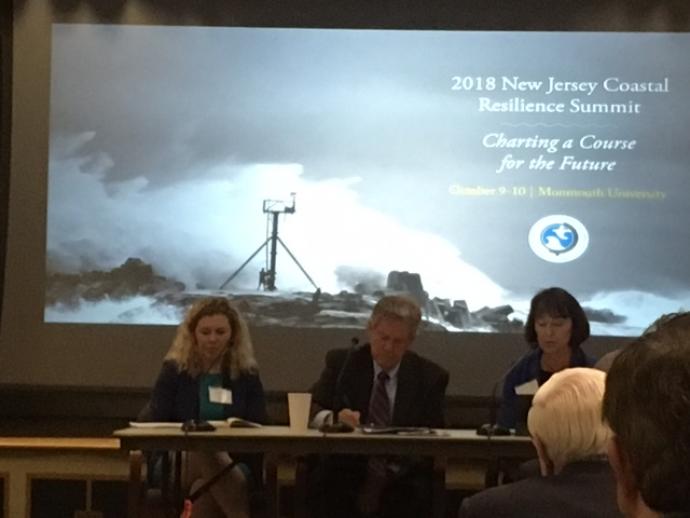
Kathleen Frangione, Chief Policy Advisor, Office of the Governor; Representative Frank Pallone; and DEP Commissioner Catherine McCabe discuss legislative and policy perspectives at the Coastal Resilience Summit.
Executive Director Evans joined researchers, policy makers, and other resilience practitioners and stakeholders from across the Northeast for a one-day, invitation-only workshop in Albany, NY on October 2, 2018. The workshop – Climate Change & Buildings: Adaptation Research Planning – was convened to help the Environmental Research program at the New York State Energy Research and Development Authority (NYSERDA) by identifying and prioritizing key adaptation issues related to buildings and the built environment. Findings from the workshop will be used by NYSERDA to update their climate change adaptation research plan for the next five years.
